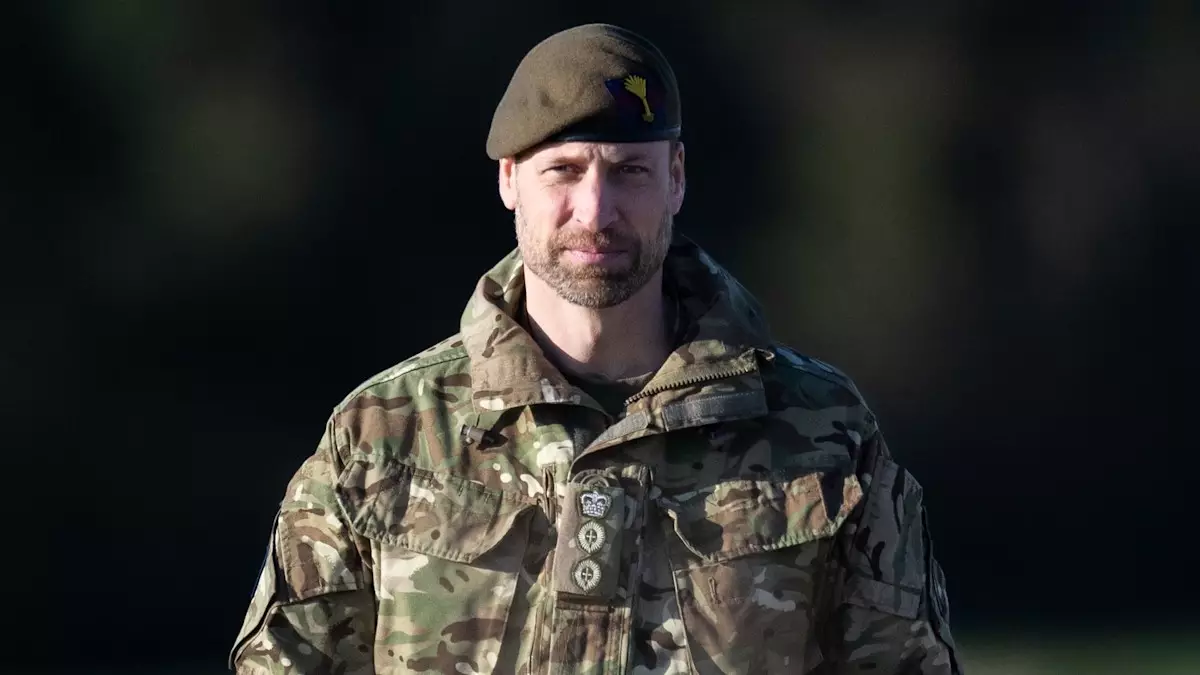On a crisp Tuesday in Salisbury Plain, Prince William, the Prince of Wales, reaffirmed his dedication to the armed forces as he joined the Welsh Guards for live military training. The 42-year-old royal has undertaken his role as the Colonel of the Regiment with notable seriousness since he assumed the position last year. Clad in military camouflage, he seamlessly blended into the ranks of soldiers from the 1st Battalion, participating in essential live-firing exercises—an experience that marks a departure from the ceremonial duties that have characterized the battalion’s recent past.
Having spent the last two years predominantly engaged in ceremonial functions, often referred to as the “blue line,” the regiment is set to transition back to “green soldiering” come January 2025. This shift signifies a renewed focus on enhancing the regiment’s specialized weapons capabilities, a crucial element in maintaining operational readiness in today’s fluid military landscape. Such transitions demonstrate not only adaptability but the importance of honing practical military skills alongside ceremonial roles.
During his visit, Prince William took the time to interact with the six-man sniper team, showcasing his genuine interest in the soldiers’ training experiences. By asking insightful questions such as, “Really decent training then? Is it good to be back out?” he bridged the gap between royal duty and military camaraderie. Comments regarding their busy year—filled with the significant duties of Queen Elizabeth II’s state funeral and King Charles’s coronation—highlighted his awareness of the balance between ceremonial pomp and the core responsibilities of soldiering.
William’s presence not only uplifted the troops’ morale but also emphasized his human side, providing him with an opportunity to engage in hands-on activities, like operating a military drone. The pivotal role of drones in current warfare, particularly in the context of the ongoing conflict in Ukraine, adds a modern twist to traditional military exercises. His willingness to learn and participate underscores a key tenet of military leadership: staying engaged and informed.
The visit attracted social media commentary, particularly surrounding Prince William’s bearded appearance, which he has maintained since last summer. In a contemporary twist to royal tradition, the British Army has recently allowed soldiers to grow facial hair while in service. William’s camouflage ensemble sparked admiration among royal enthusiasts, who expressed their appreciation for his aesthetic transformation. Comments such as “The handsome Prince” and “I love this new era of William” reflect a public’s warmth toward his modernized image.
In an age where royal appearances often invite scrutiny, Prince William’s choices resonate with themes of approachability and relatability. This shift not only personalizes the royal image but also aligns with current social trends that celebrate more relaxed and individualistic expressions within formal settings.
As Prince William continues to actively participate in military engagements, Kensington Palace has also confirmed that the Princess of Wales, Kate Middleton, will play an important role in the upcoming state visit of the Emir of Qatar to the UK. This royal engagement, which includes the reception of His Highness Sheikh Tamim bin Hamad Al Thani and Her Highness Sheikha Jawaher bint Hamad bin Suhaim Al Thani, reflects the ongoing responsibilities the royal family holds in fostering international relations.
The couple is expected to accompany the Qatari leaders in a carriage procession—a deeply rooted tradition that links the royal family to historical ceremonies. This dual commitment to both military and diplomatic duties positions the Prince and Princess of Wales as central figures in modern British society while honoring the legacy of their predecessors.
Prince William’s participation with the Welsh Guards embodies a blend of royal duty, military respect, and personal evolution, indicating a thoughtful approach to leadership as he prepares for future roles in the lineage of British royalty.


Leave a Reply